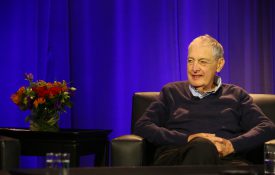-
Juvenile Justice – Moving From Punishment to Hope and Healing
Every year in the United States, nearly 250,000 youths are tried, sentenced, or incarcerated as adults. Though the age limit for juvenile court varies from state to state, the cutoff age in most jurisdictions is 18. Frankie Guzman, a lawyer at the National Center for Youth Law who directs its California Youth Justice Initiative and who was incarcerated himself as a youth, calls this cutoff “arbitrary,” because the adolescent brain continues to develop well into one’s 20s.
-
Multinomial Processing Tree Modeling Workshop
A Multinomial Processing Tree (MPT) Modeling preconference workshop will run March 21 to March 22, 2020 at the 62nd Conference of Experimental Psychologists in Jena, Germany. The two-day workshop will provide a systematic and application-oriented overview of the basics and the most recent developments in MPT modeling. For more information, visit the MPT modeling workshop page. This workshop is supported by the William K. & Katherine W. Estes Fund, a fund jointly overseen by APS and the Psychonomic Society to support summer schools and workshops offering training in mathematical and computational modeling.
-
Opinion: Why you find it so hard to resist taking bad advice
In a series of experiments, my colleagues and I had a middle-aged man offer 253 ferry passengers traveling from Connecticut to Long Island the choice between $5 and a chance in a mystery lottery (paying from $0 to $10 with an average payout of less than $5) in exchange for completing a short survey. When he gave no advice, only 8% of survey-takers chose the lottery. When he advised passengers to choose the lottery, 20% did. More alarming were the results when he disclosed that, if they chose the lottery, he would receive a bonus: As logic suggests, the passengers told us they trusted him less now they knew about his conflict of interest. Yet, 42% of them complied and took the lottery.
-
The Ultimate Learning Machines
Last July, I went to the Defense Advanced Research Projects Agency (DARPA), the blue-sky government research lab that helped to invent the computer and the internet. I was there, strange as it may seem, to talk about babies. The latest big DARPA research project, Machine Common Sense, is funding collaborations between child psychologists like me and computer scientists. This year I also talked about children’s minds at Google, Facebook and Apple. Why are quintessentially geeky places like DARPA and Google suddenly interested in talking about something as profoundly ungeeky as babies?
-

Inside the Psychologist’s Studio with Lee Ross
The social psychologist renowned for his research on human judgment and on conflict resolution discusses the impact of his work.
-
2020 Society for Affective Science Conference
The Society for Affective Science Conference will be help April 23 - 25, 2020 in San Francisco, CA. For more information, visit society-for-affective-science.org.

